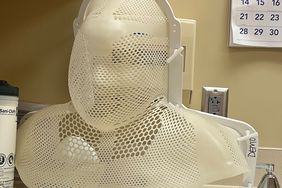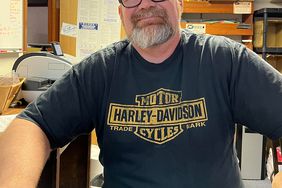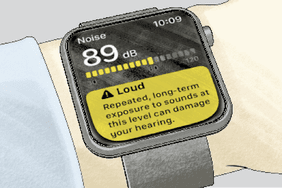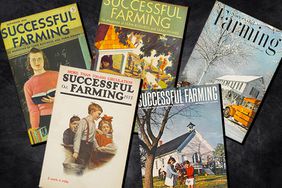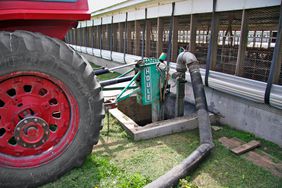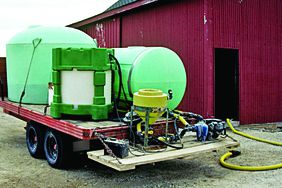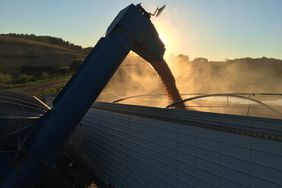:max_bytes(150000):strip_icc()/tractoronroad-41fb2f1e0bed48bfb1607af7417f7f0b.jpg)
It's harvest time, and that means rural motorists and farmers moving tractors and combines from field to field have to share the road. This often causes frustration for both parties, which can lead to unsafe decisions and deadly accidents.
While only 19% of Americans live in rural areas, the U.S. Department of Transportation reports that 55% of all highway deaths happen on rural roads.
- READ MORE: Remind teenagers of rural road dangers
The National Institute for Occupational Safety and Health (NIOSH) estimates 15,000 collisions across America involve agriculture-related equipment each year, resulting in around 50 tractor-operator deaths. In order to prevent these tragic accidents, both parties need to take a breath, be patient, and remember safety on the road is a shared responsibility.
Farmers should consider drivers
Josie Rudolphi is an assistant professor of agricultural and biological engineering at the University of Illinois. She recommends using an escort vehicle to add a safety net between farm equipment and other traffic on the road.
"It does require an extra driver and an extra vehicle, and we know that's not always an option for farmers who may be working independently, but the use of an escort vehicle is really valuable," she says. "This person can drive up a half mile or a mile in front of the slow-moving vehicle to ensure that there's nothing big or obstructive on the road. They could also follow the vehicle and create what would we consider a bit of a barrier between the very slow-moving vehicle and oncoming traffic."
- READ MORE: Road safety at harvest time
She says to make sure traffic can see you by using reflective tape, slow moving vehicle signs, and flashing lights.
It's also important for farmers to keep windows clean. "We certainly tend to travel during that twilight hour, that golden hour early in the morning and towards late evening. And our view can really be obstructed by dust or other types of debris on our windows," she says. "We certainly don't want any type of blind spots or anything to keep us from seeing what's out there."
Bill Field is an ag and biological engineering professor at Purdue University. He says farmers are responsible for contributing to safer highways by how they transport equipment, the times of the day they transport equipment, and that they recognize there are impatient people.
- READ MORE: Sharing the road during harvest
"If you live on a road where most of your rush hour traffic for folks getting home is around 5:00-6:00, I think it's maybe a good consideration to not transport equipment during those hours," says Field. "Those are the times when people are leaving work, and they're a little bit frustrated, and if you look at the data there's a fair amount of incidents that occur during rush hour. In rural communities we don't think there's a rush hour, but most rural people work somewhere else other than their homes."
Another thing farmers need to remember is that riders should not be allowed. If a piece of equipment has one seat, it is meant for one rider. While it can be tempting to let children ride along, especially during busy seasons when a farming parent might not be at home much, it's not safe.
Drivers should consider farmers
Likewise, Field says, motorists need to give the farmers a break and remember they're just trying to get their work done.
Motorists should consider that even if they have to follow a piece of equipment going 20 miles per hour for two miles, that only takes six minutes, which is about the equivalent of sitting through two stoplights.
"If you're living in a rural community and you enjoy all the aspects of living out there in the country, also recognize that there are other parts of that that are maybe inconvenient to you. And that's when these guys are trying to get their work in and they're on the highway. Just give them a little bit more space, avoid trying to pass on double lines, and reduce your speed," he advises. "It's amazing how many of these incidents involve speed."

